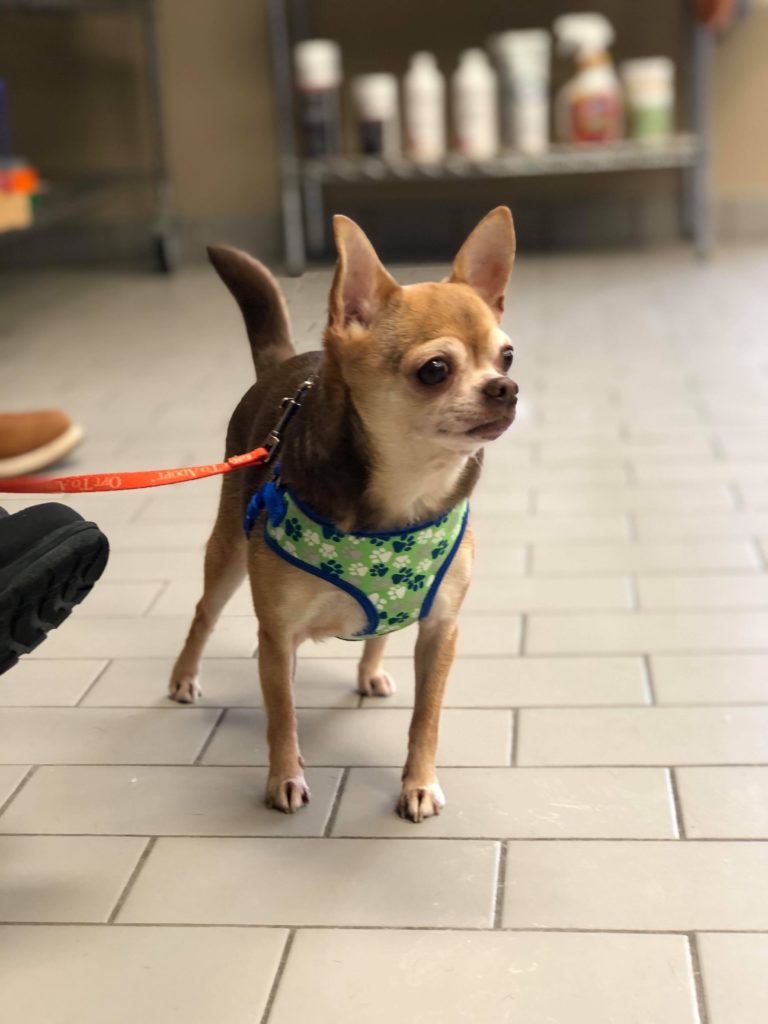
As your pet becomes a senior, you may notice some changes in them. It is important to support your senior pet’s health as much as possible. Here are some tips on how to provide the best senior pet care for your beloved companion:
Table of Contents
Schedule Annual Physical Exam
Many changes in your pet won’t be visible to an untrained eye, so it is important to keep up with annual vet visits. Some vets may even recommend increasing your yearly visits to biannual to keep an extra close eye on your senior pet’s condition. During a physical exam, your vet will be able to examine your pet from head to toe for any abnormalities. They may also make some recommendations to you regarding your pet’s current care plan that you have in place.
Annual Bloodwork
In younger pets, bloodwork may be done as a baseline, but usually, pet owner’s only opted to do it when their pet is sick. That being said, as your pet gets older bloodwork becomes increasingly important! More specifically, bloodwork can provide you with a “snapshot” of how the vital organs are functioning within your pet. As your pet ages, their kidneys and liver values may change. It is not uncommon for a pet to develop diseases of these organs or others. Upon doing bloodwork your vet will be able to safely recommend medications (and food) for your pet. Without bloodwork, your vet may be limited as to what they are able to prescribe.
Diet Change
As your pet becomes a senior their food requirements may change. It is important to discuss your pet’s diet with your veterinarian! Your own veterinarian is the only one who can make safe and appropriate food recommendations for your pet as they are aware of your pet’s health requirements.
For instance, if bloodwork reveals that your pet has kidney disease- there are specific foods that support that disease. If your cat has developed thyroid disease- there is a food for that as well. Again, your vet must prescribe these foods.
If your pet has developed arthritis your vet may recommend switching to a food that contains glucosamine and omega fatty acids to help support their joints. There are many foods that are beneficial- I highly recommend speaking with your vet about your pet’s diet.
Supplements
If you are not comfortable altering your pet’s diet- or they have dietary restrictions, supplements may be a good idea! More specifically, supplements can be helpful if your pet has developed arthritis or mobility issues by supporting joint function. Some supplements include glucosamine, chondroitin, and/or omega fatty acids. Before considering supplements, you should ensure that these ingredients aren’t already present in your pet’s food as some senior or mobility pet foods might. But, if not then discuss supplements with your vet.
Important Note: Do not self-medicate your pet without consulting your veterinarian first. Moreover, do NOT give any human medications to your pet.
Monitor Your Their Behaviour
When it comes to behaviour- you know your pet best! Continue to be diligent as your pet ages, monitor their behaviour for any changes. You may notice that perhaps they are bumping into things, stumbling, confused, decreased appetite. These are all observations that you should inform your vet about!
Certain behavioural changes may indicate that your pet is developing cognitive dysfunction. Some clinical signs you may see with this are:
- Disoriented
- Anxious
- Urinating and/or defecating in the house
- Altered sleep/wake cycle
- Activity changes
- Interaction changes
Upon noticing any of these symptoms, call your veterinarian to discuss.
Make Your Home Senior Pet Friendly
If you notice that your pet has difficulty with their mobility you may want to consider altering your home. Similarly, if your pet has trouble getting up- try placing more rugs or mats around the house to provide them with more traction. There are also booties that you can purchase called Pawz that are very thin but provide great traction for your pet to be able to move properly. Additionally, if your pet has difficulty with the stairs, try putting up a baby gate to ensure they don’t injure themselves. Furthermore, getting onto couches, or in and out of the car can also be challenging for senior pets, consider purchasing ramp(s) to make these activities more senior-friendly! These products can make senior pet care much easier!




Strollers

Senior pet’s mobility can be decreased. While your pet may still love the idea of a walk, you may find that they just aren’t able to participate the way they used to. If this is the case- consider purchasing a pet stroller. While these may seem silly, your pet may really enjoy one. Taking your pet on a walk is so important as it provides physical and mental stimulation. If your pet isn’t able to walk- putting them in a stroller can still give them the mental stimulation they need. This will also reduce your stress too! You don’t have to worry about your companion injuring themselves on their walk, and you know you will have a reliable way to get them home if they are not able to walk the rest of the way!
The number one stroller we recommend is the Dutch Doggyride! One of the reasons being because it is very versatile as it can attach to a bike or be pushed. It also accommodates both small and very large dogs. This is perfect for any senior companion as it provides a smooth and comfortable ride. However, if this stroller isn’t your style, check out our list of the top strollers we recommend!


Consider Quality Of Life
This is a very important factor to consider but can be so emotionally challenging to evaluate. Again, you know your pet best, but if you struggle with evaluating this, your vet can help you! A good way to monitor your senior pet’s quality of life is by marking the type of days on the calendar. Each day markdown if your pet has a good or bad day. If the bad days outweighed the good days then it may be time to reach out to your vet for recommendations on how to keep your pet more comfortable as they age.
Remember, your veterinary team is there to help your companion so do discuss your senior pet’s care plan with them as well. Be sure to ask your vet before making any diet, or supplement changes.
Frequently Asked Questions
A senior pet is typically considered to be a pet over 7 years of age.
To keep your elderly pet healthy schedule regular veterinary visits for a physical exam and bloodwork. This will allow your veterinarian to make appropriate recommendations to keep your pet in good health.
